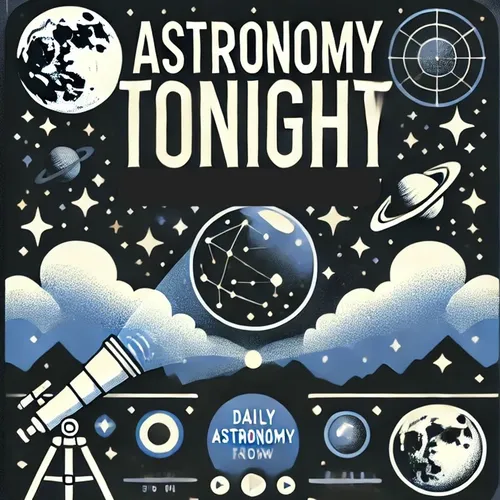Astronomy Tonight for - 10-30-2024
- Author
- Inception Point Ai
- Published
- Wed 30 Oct 2024
- Episode Link
- https://www.spreaker.com/episode/astronomy-tonight-for-10-30-2024--62553999
Ah, October 30th! A date that echoes through the cosmos with astronomical significance. Let me regale you with a tale of celestial wonder that occurred on this very day in 1995.
On October 30, 1995, astronomers made a groundbreaking discovery that would change our understanding of the universe: the first definitive detection of a planet orbiting a sun-like star outside our solar system. This exoplanet, dubbed 51 Pegasi b, was found orbiting the star 51 Pegasi, located about 50 light-years away in the constellation Pegasus.
Swiss astronomers Michel Mayor and Didier Queloz of the Geneva Observatory made this monumental discovery using the radial velocity method. They observed tiny wobbles in the star's motion caused by the gravitational pull of the orbiting planet. This technique would go on to become one of the most successful methods for detecting exoplanets.
Now, imagine the excitement in the astronomy community! Picture Mayor and Queloz, probably fueled by copious amounts of coffee and the thrill of discovery, poring over their data late into the night. Their eureka moment must have been something to behold – perhaps a victory dance around the observatory or a celebratory game of "pin the tail on the exoplanet"?
51 Pegasi b, affectionately nicknamed "Bellerophon" after the mythical Greek hero who tamed Pegasus, turned out to be quite the oddball. This gas giant, about half the mass of Jupiter, orbits its star every 4.2 Earth days. That's right, its year is shorter than our week! It's so close to its star that its surface temperature is estimated to be a toasty 1000°C (1832°F). Talk about a hot Jupiter!
This discovery opened the floodgates for exoplanet research. It challenged our assumptions about planetary formation and sparked a new era of astronomical exploration. Since then, thousands of exoplanets have been discovered, each with its own quirks and mysteries.
So, on this day, October 30th, we celebrate the birthday of exoplanet astronomy. It's a reminder that the universe is full of surprises, and that sometimes, the most significant discoveries come from looking at familiar stars in new ways. Who knows what other cosmic secrets await us in the vast expanse of space? Perhaps on some distant world, alien astronomers are discovering us!
This content was created in partnership and with the help of Artificial Intelligence AI
